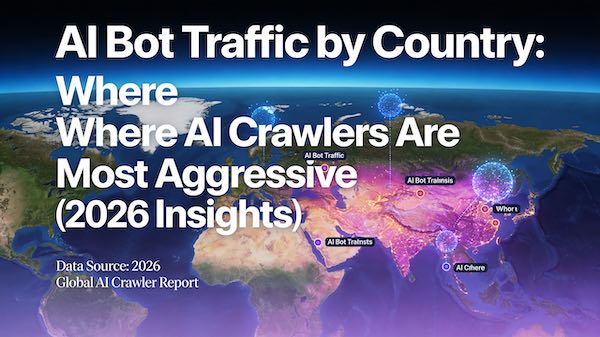
So, let's begin this exciting venture into mastering our E-E-A-T checklist.
What is E-E-A-T?
E-E-A-T is an acronym created by Google and it stands for Experience, Expertise, Authoritativeness, and Trustworthiness. These are the four core pillars Google’s search algorithm looks for in your content.
E-E-A-T can be seen as a framework used by Google to assess the quality of content on websites and an evolution of the original E-A-T (Expertise, Authoritativeness and Trustworthiness).

Why is E-E-A-T Important?
As users, we're spoilt for choice when it comes to online content. However, the challenge we face is the authenticity and credibility of this accessible information.
Google, realizing this, now emphasizes E-E-A-T to ensure it prioritizes high-quality, valuable and reliable content in its search results.
Adapting to E-E-A-T guidelines ensures you're playing by the rules set by Google themselves. You're handing Google exactly what it's looking for in terms of quality content.
Therefore, implementing E-E-A-T strategies can improve your search engine ranking potential, eventually driving more traffic to your site.
Moreover, a high E-E-A-T score boosts your credibility and authority in your niche, which translates into increased trust from your audience.
Your E-E-A-T Checklist With 11 Steps
Aligning your website with Google's E-E-A-T guidelines significantly contributes to your site's visibility, credibility, and ranking in search engine results.
Here are some tips and tricks that can bolster your E-E-A-T success:
01. Prioritise Quality
High-quality content is always a winner. Create content that is interesting, informative, and adds value to your reader's lives.
Understand your target audience, do keyword research to find relevant keywords, and strategically place them in your content.
Make sure your content is well-researched and comprehensive. Ensure your content tidbits are accurate and reliable.
Showcase your qualifications, certifications, and awards. Use case studies and real-life examples to demonstrate your expertise.
Demonstrating experience and expertise goes a long way in validating your content, giving it the much-needed backup in Google's E-E-A-T evaluation.

02. Include Terms That Reference Time
Time speaks volumes about your credibility in a domain. When you include terms referencing the length of your experience or your hand-on project timelines, your audience can perceive the depth of your understanding and your mastery over the field.
This in turn, helps establish the 'Expertise' and 'Authority' parts of your E-E-A-T.
In your blog posts, landing pages, or even the 'About us' section—don't shy away from using phrases like "Serving customers for over 10 years", "More than a decade of industry experience", or "Managed 15 large scale projects across 5 countries".
03. Create Author Bio Pages
A comprehensive author bio page displaying credentials, qualifications, experience can act as a beacon of your authority and expertise to both readers and Google.
An author bio is like an artist's signature on their masterpiece - it validates the creation. It helps in establishing authoritativeness and also provides a sense of credibility. It is an effective way of demonstrating the 'E' in E-E-A-T - Expertise.
Creating a dedicated author bio page including details like qualifications, certifications, recognitions, field-specific experiences, the passion for the topic, and even a professional picture can amplify the trust factor amongst your audience.

04. Use First-Person Narrative
Using a first-person narrative approach can boost your reader engagement and display passion and authority in your expertise.
There is nothing more genuine than first-person narratives. They not only personalise your content, but also make your passion for the subject palpable to your audience. It's a great way of demonstrating expertise without sounding monotonous or pretentious.
For instance, instead of writing, "SEO practitioners reckon that semantic search will be vital for SEO in the coming years", go for "As an SEO professional, I believe that semantic search will play a pivotal role in SEO moving forward."
05. Build Topical Authority
Developing a topical authority in your specific lair implies creating an array of comprehensive content around specific subjects or topics where you want to establish your expertise. It's about becoming a go-to resource for those topics in Google's eyes.
Create a corpus of high-quality and detailed content around your chosen topic. This signals to Google that you're an expert on that particular subject area. Use statistics and data to back up your information.
Interlink related articles on your website, creating a cluster of attached information around the topic of your choice. Actively solve queries and engage with discussions related to your topic area.
Cultivating a specialized focus in your content strategy can greatly amplify your authoritativeness and ultimately bolster your holistic E-E-A-T profile.

👉 Read our blog post: How to Create a Topical Map in 6 Steps
06. Utilise Social Media
E-E-A-T guidelines extend beyond just your website. Your presence and engagements on various social media platforms also play a significant role.
Ensure your branding is consistent across all online platforms. This includes your logo, company mission, and the core theme of your content.
Go beyond just posting updates. Engage with your audience directly through comments, discussions, or even Q&A sessions.
Keep your audience in the loop by regularly sharing news, product updates, or insightful content.
07. Leverage Link Building
Link building, in the E-E-A-T universe, carries pivotal importance. Google's algorithm evaluates the quality and quantity of external links pointing to your page, thus impacting your website's authoritativeness.
Focus on getting quality inbound links, from high-authority and relevant websites. A few trustworthy links will outperform numerous low-value links.
Make sure your links are coming from websites that are relevant to your field. Contextual link building is a crucial factor.
Use clear, descriptive anchor text for your links. It should give users (and Google) a hint about the linked content. Maintain a natural and diversified anchor text profile.
Good link building isn’t just about increasing your website's authority. It's also an opportunity for you to build relationships with influencers in your industry, creating datelines of collaboration, and fostering a sense of community.

08. Implement Structured Data
Structured data is code written in a specific format that helps search engines better understand your website's content. It's like attaching an informational tag to your content, making it easier for Google to index and accurately represent your web page in search results.
You can implement schema markup intelligently to send out stronger E-E-A-T signals to Google.
Clearly define your organization with a well-structured hierarchy. Include all necessary contact information. Highlight your awards or recognition.
Use FAQ schema to provide useful and credible information to the audience or person schema for authors to display their expertise.
09. Check for Broken Links
Imagine you're surfing the internet for some valuable piece of information. You click on a link that promises to provide just that, but all you see is a "404 error: Page not found". Frustrating, isn't it? Well, Google thinks so too.
404 errors can hamper the user experience, causing your audience to leave your site sooner than they otherwise would, and this increased bounce rate can negatively impact your ranking.
Much like 404 errors, broken external links can also degrade user experience and affect your SEO ranking.
Use tools like Google Search Console or SEOmator’s Free Audit Tool to identify any 404 errors or broken links on your site.
Fixing the issue could mean restoring the page if it's inadvertently been deleted, fixing incorrect or broken links, or setting up a redirect to another relevant page.

👉 Read our blog post: How to Find & Fix Broken Links in Google Search Console
10. Enable SSL Certificate
An SSL certificate is like a digital passport for your website. It strengthens website security by creating an encrypted link between a web server and a browser - ensuring all data passed between the two remains private and secure. Furthermore, Google also gives ranking preference to websites that are SSL certified.
In other words, an SSL certificate is a testament to the 'Trust' in your E-E-A-T.
But how does one enable an SSL certificate? It's simple:
Get an SSL certificate from a trusted Certificate Authority (CA). Once you've purchased the certificate, you'll need to install it on your website server.
After the SSL certificate is installed, ensure that your site uses HTTPS (the secure version of HTTP) in its URLs.
11. Understand GDPR Compliance
Showing that you care for your user's privacy is another fantastic way to boost your Trust candle on the E-E-A-T cake.
In a world where data protection and privacy have become crucial, understanding and complying with GDPR (General Data Protection Regulation) is a must for every website owner.
Be transparent about how you gather, store, and use your visitor's data in your Privacy Policy or opt-in forms.
Give users a fair choice to opt-out of data collection practices if they want to.
Ensure that the data you collect is stored securely.

Conclusion
The goal of adopting Google’s E-E-A-T guidelines is to enhance the overall user experience and ensure that your content is the most useful, trustworthy and authoritative source of information for your target audience.
Translating E-E-A-T guidelines into practice is a steady, gradual process that involves strategic planning and meticulous execution.
With the actionable steps in our checklist, you are well on your way to fine-tuning your strategies to comply with Google's E-E-A-T, and paving your way to SEO success!
👉 Related Articles:
- How to Find Trending Keywords (7 Methods)





